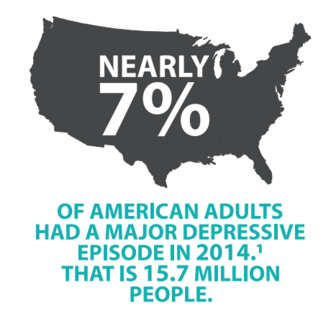Mental Health Month: Crisis Centers — An Important Resource for Suicide Prevention
Published 11:00 am Thursday, May 12, 2016

- Mental Health Month
Zachary Alldritt tried to kill himself less than a year ago. He was taken to the emergency room before being placed in the psychiatric unit at Brookwood Medical Center, where he was held for three days before being released.
Alldritt, who was 20 years old, living between Pell City, Vincent and Birmingham at the time, said that if he had known crisis centers were available, or if there was one in the area he could’ve gone to, it would have helped him immensely.
When looking for long-term mental health treatment in St. Clair County, there are several counseling resources, from licensed counselors to psychological centers. However, the amount of resources for immediate help declines when someone’s in a crisis situation. The only crisis center that serves the area is in downtown Birmingham, and it only accepts phone calls, not walk-ins.
“It’s dangerous when people feel depressed and are having suicidal thoughts, feeling alone, secluded or disregarded. Being able to have a listening ear on the phone is a special thing,” said Andrew Sparks, a licensed counselor at the University of Alabama at Birmingham. “I have found that people, in general, feel suicide is an issue that does not affect them or the people they know or love.”
However, according to the Alabama Department of Public Health, the suicide rate, both nationally and locally, is twice as high as the homicide rate. The American Foundation for Suicide Prevention claims that for every one completed suicide, there are 25 attempts. In 2012, there were 84 recorded suicides in people below 20 years of age; meaning that at least 2,100 youths attempted to kill themselves that year.
These attempts are where crisis centers come in. In the event of an emergency, you should always dial 911. But in some cases, having a center available can keep the crisis from escalating can also provide a person with tools to immediately cope with their situation.
“I would never call 911 for myself,” Alldritt said, referring to his suicide attempt, “If I did have access to a crisis center, I would have greatly appreciated it and it would’ve prevented the entire situation to begin with. I would’ve been able to seek out my own help.”
Calling 911 can seem daunting and, according to Sparks, many of the people he works with claim they are more likely to call or visit a crisis center before calling 911.
“Much of the time, people think they are going be locked up if they call 911. A crisis center provides a simple conversation and, sometimes, guidance,” Sparks said.
“Whenever I was having a panic attack, there were no safe places to go,” Alldritt said, “I did go to the Pell City Animal Shelter a lot. Sitting in the room with cats would always calm me down.”
A safe place is exactly what Alldritt is wanting.
“If there were more crisis centers out there, like in St. Clair County, I feel it would help keep a lot of other people like me out of those situations.”
As Sparks points out, the problem is twofold; with a lack of resources, followed by misunderstandings about what those resources are for. Just like people don’t think suicide affects people close to them, he said, people also think resources aren’t for them.
The solution comes from allowing people to talk more openly and honestly, Sparks believes.
“Resources will come if people make it a priority.”
Medical Resources:
Glenn Magargee, LPC
(205) 913-0628
J.B.S. Mental Health Authority
(205) 595-4555
jbsmha.com
Eastside Mental Health Center
(205) 338-7525, Pell City Office
eastsidemhc.org
Crisis Lines and chats:
National Suicide Prevention Lifeline
(800) 273-8255
Birmingham Crisis Center
(205) 323-7777
crisiscenterbham.org
Lifeline Crisis Chat
crisischat.org
IMAlive
imalive.org


